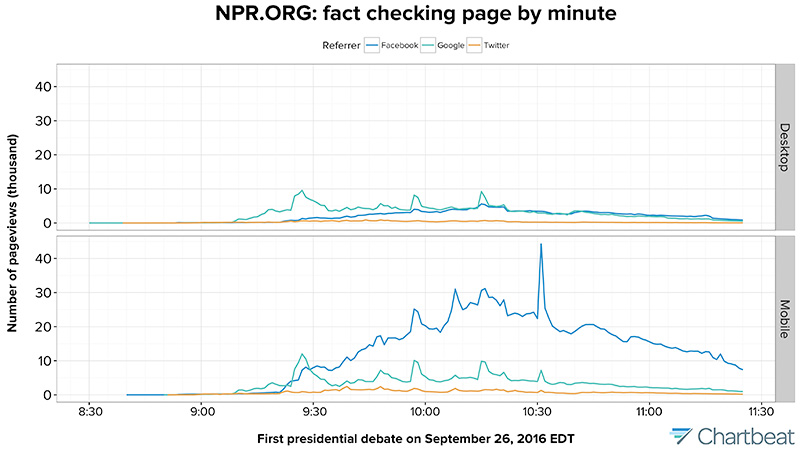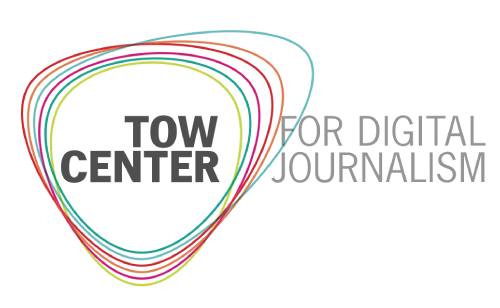Sign up for the daily CJR newsletter.
Yesterday, NPR reported a large ratings increase across the board: radio, podcasts, and the website all saw a major jump in audience this year. NPR President and CEO Jarl Mohn attributes this to the country’s “appetite for factual reporting” and NPR’s reputation. On the digital side, one of NPR’s greatest successes this year was its fact-checking page during the first presidential debate.
The fact-checking page garnered almost 10 million page views total, NPR reports, and debate night and the day following made for NPR’s two best traffic days ever. The page displayed a live transcript of the debate, with reporters’ annotations rolling in on top of it. While NPR had prepared for the page to be popular, the amount of traffic it drove was unprecedented, and surprised many NPR staffers.
Why did it perform so well? Building the audience ahead of time was surely one major factor contributing to the page’s performance. NPR spent many months before the debates building a reputation as a source for fact-checking, Washington Editor Beth Donovan and NPR News Digital Editor Amita Kelly told me. They did test runs of the fact-checking process during the RNC and DNC speeches to build their muscles and refine the annotation approach.
But this isn’t the whole story. Looking into the analytics, according to Chartbeat data and confirmed by NPR, Facebook was the major driver of traffic for the page, though it also did well on search. On the night of the debate alone, Facebook sent over 2 million page views to the page. Below is a graphic of minute by minute data from Chartbeat on the NPR fact-checking page during the first debate.
There are several small spikes in the data: at 9:27 pm, when Hillary Clinton suggested fact-checking, there was a spike in search. At 9:57 pm, when Donald Trump spoke about President Obama’s birth certificate, there was a spike on Facebook and Google-driven traffic. But the largest peak comes just after the debate ended, around 10:30 pm.
I asked Daniel Frohlich, a metrics analyst at NPR, whether this was because a particular post went viral at the end of the debate. As far as the NPR analytics team can tell, he said, Facebook traffic did not come from any particular post going viral. Nor did they spend money promoting Facebook posts for the first debate. About half of Facebook traffic came from posts on the 90 NPR pages that shared it, and half came from organic sharing by readers.
This particular page has none of the hallmarks of what Facebook usually favors; it wasn’t an instant article or a livestream. As the Tow Center for Digital Journalism’s Research Director Claire Wardle noted, Facebook is not known for pushing out live content. Frohlich concurred; posting at a particular time doesn’t mean that the post will find readers. It could be hours or even days before a post takes off, he said.
Ultimately, the fact that Facebook traffic spiked at the end of the debate wasn’t based on a decision made by NPR, or some viral fluke, but rather determined by Facebook’s algorithm. As publisher, NPR had no control over how many people saw its post, and how or why the page did so well on Facebook remains something of a mystery.
This page is being hailed by NPR as one big reason why its Web traffic is up this year. Facebook had a lot to do with that—its algorithm favoring one link or another affects the fate of publishers.
Thanks to Sonya Song and the Chartbeat team for their help with this piece.
A previous version of this piece incorrectly identified the fact-checking page as a ratings success, rather than a Web traffic success.
Has America ever needed a media defender more than now? Help us by joining CJR today.










